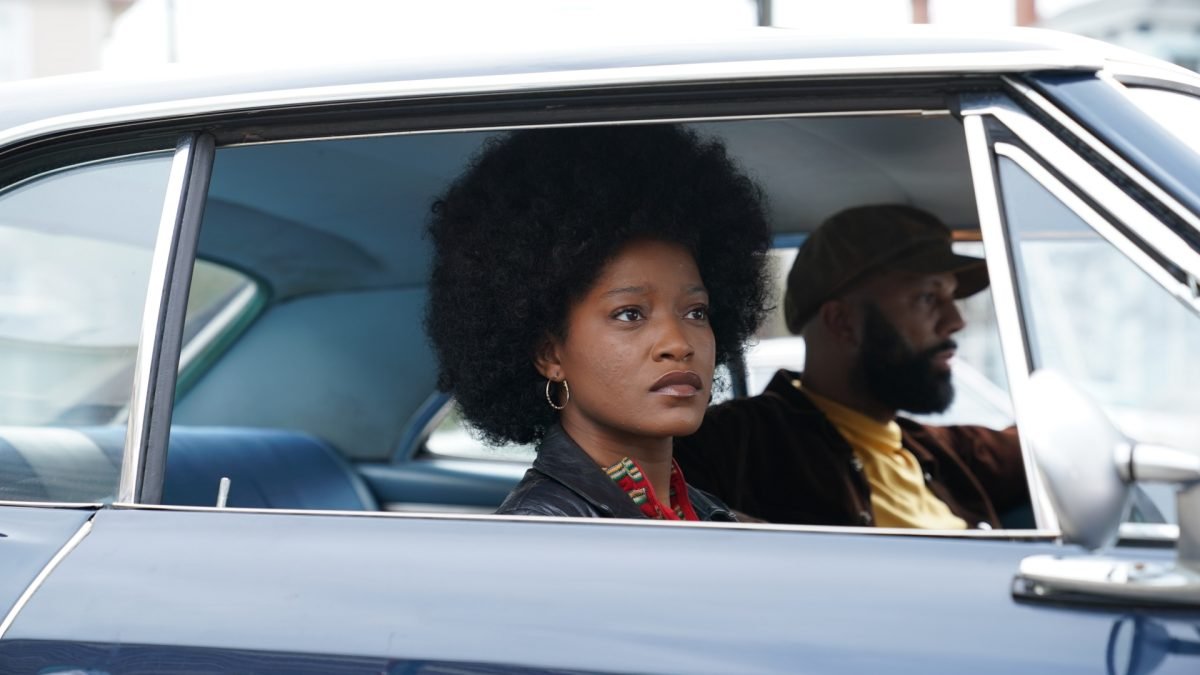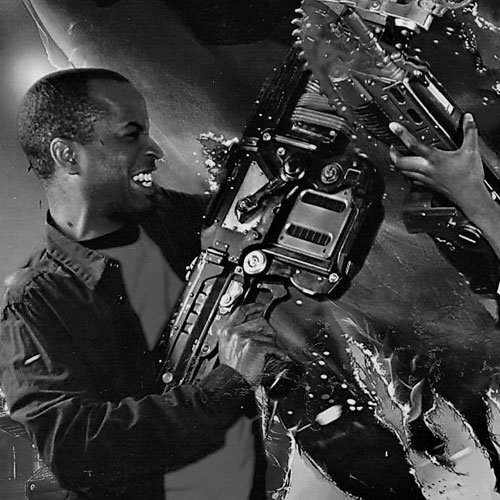Krystin Ver Linden’s directorial debut Alice is probably one of the boldest film-genre mashups I’ve witnessed in a long time, taking the harrowing and violent tone of recent slave narrative-based films like 12 Years a Slave and Harriet and crossing it with the also violent but more sensationalist, Funk/Soul/R&B-infused infused blaxploitation films of the 1970s, particularly those starring Pam Grier, such as Coffy and Foxy Brown.
Not that Hollywood hasn’t been there before, with Quentin Tarantino’s “Revisionist Western” Django Unchained serving as one of the most notably overt examples, stirring the two extremes together in a gratuitously cinematic witches brew of comedy and crazy. By contrast, Alice strives to keep these two elements separate for as long as possible in order to tell a highly unlikely fish-out-of-water tale with a dark spin.
Alice stars actress and recording artist Keke Palmer (Scream Queens) as the titular hero, a young woman who escapes her family’s three generations of brutal enslavement on a secluded, rural Georgia plantation only to stumble out of the surrounding woodlands onto a highway and discover she is actually living in 1973, with the era of slavery as she always knew it having already long past. It’s direct lifting of the third-act twist from M. Night Shyamalan’s The Village, except that here it serves as the film’s entire foundation, swapping out the traditionalist cult for the plantation and outside world of modern America for its 1970s equivalent, still basking in the afterglow of the 60s Civil Rights Movement. It’s a paper-thin premise, but still intriguing at the very least.
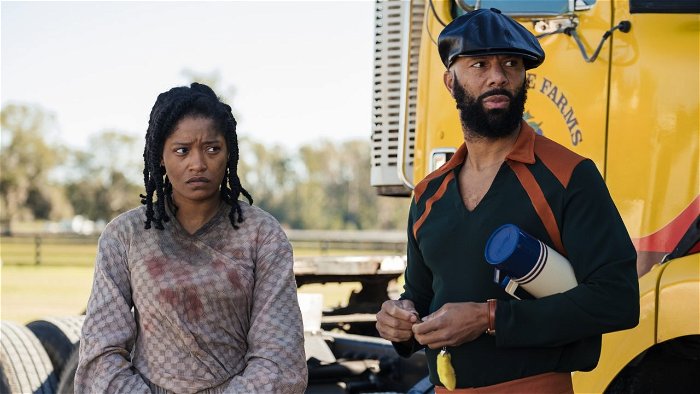
Of course, Alice’s horrific revelation about the truth of her present does not occur in a total vacuum. Found unconscious on the road after having fainted by a black truck driver named Frank (played by rap artist Common), Alice eventually ends up staying as a guest in his home while she comes to understand her new reality and Frank struggles to figure out what is seemingly “wrong” with Alice until finally coming around to believing her story.
It just so turns out that Frank was once a member of the Black Panther movement and that his apartment is a treasure trove of books, newspaper clippings, and magazine memorabilia from his recently tragic past. Throw in Frank’s colour TV set, record player, extensive vinyl R&B collection and stylish wardrobe belonging to both himself and his late mother, and you have the perfect fertile ground for Alice’s knowledge and understanding to grow as she concocts her plan for revenge against her “former owners”, the Bennett family.
“Krystin Ver Linden’s directorial debut Alice is probably one of the boldest film-genre mashups I’ve witnessed in a long time…”
Keke Palmer’s raw, emotional performances as Alice, both as an oppressed victim of physical, sexual, and psychological abuse at the hands of the Bennett family patriarch, Paul Bennett, as well as a newly freed woman in the second act coming into her own and fully realizing the life that until now she had been robbed of, are the most genuine of the entire film and are worth the price of admission alone, Without a doubt they easily stand among the strongest yet in Palmer’s still rising career.
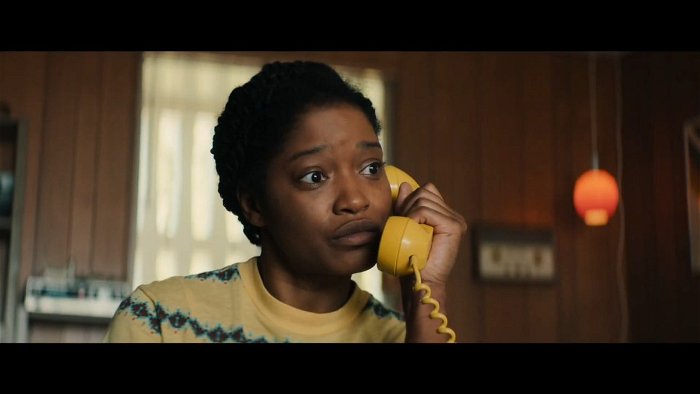
Also, Jonny Lee Miller is genuinely terrifying in his turn as the evangelical slave owner Paul, and I could not help but draw several parallels between him and Michael Fassbender’s Edwin Epps from 12 Years A Slave, a fellow slaver and rapist who uses a twisted interpretation of Christianity to justify the keeping of slaves. Sadly, while Edwin is given enough time to reveal his own flawed and tortured nature despite being wholly reprehensible, Paul isn’t afforded such depth, which I’ll get into shortly.
My main issue with Alice is that while the “slavery-half” sets up the potential for an exciting third act once all the inevitable fish-out-of-water tropes have been played out and Alice’s attention turns back to the task of rescuing her family and friends still enslaved by the Bennett Plantation, the blaxploitation-half (or “free-half” if you will), ultimately comes off as disappointingly tame, on a number of levels.
“Jonny Lee Miller is genuinely terrifying in his turn as the evangelical slave owner Paul…”
Allow me to tackle the blaxploitation angle first, from the completely non-professional perspective of a POC film fan. There are no hard and fast rules on how exploitative, sensationalist, violent, or controversial a blaxploitation film needs to be, but by virtue of embracing that genre’s look, style, musical sound, themes etc. as closely as Alice does, director Ver Linden inexorably has created the expectation of entertainment and mildly over-the-top thrills at a bare minimum, and it’s questionable whether the film succeeds in doing that in the end. Especially when compared to the overt violence and suggested sexual violence of the first act, Alice in her quest for vengeance in the second and third acts inexplicably pulls its punches, and so do her enemies and doubters (the doubter being Frank), resulting in a film that comes off more like “edutainment” for adults than actual art. At one point, Alice and Frank actually go to see Coffy in the movie theatre, but Alice never dares to match that film’s intensity.
What’s more unfortunate is that even if one discards the notion that Alice is a blaxploitation film at all and is instead a serious drama inspired by the events of the era, including blaxploitation, Civil Rights, Funk, Soul, R&B, and so on, that’s when the film truly falls flat on its face due to the aforementioned lack of proper time dedicated to logically fleshing out its world and characters, which could have made the film’s larger strokes more believable and convincing.
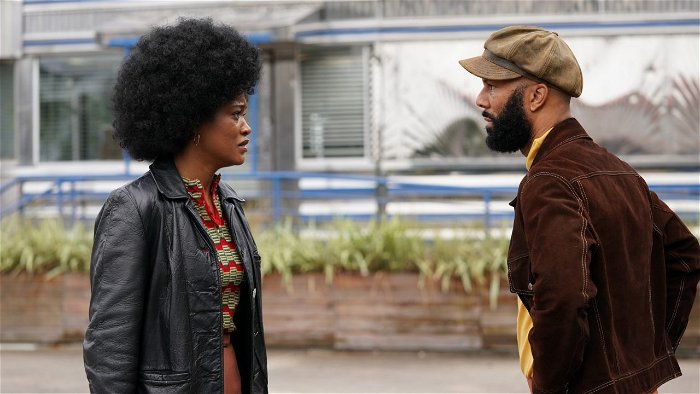
For example, it’s established early on that Paul taught Alice to read just well enough (and not to write) so that she could read scripture aloud to him as a domestic servant. Once having escaped and living as a guest in Frank’s home, however, Alice somehow manages to read every relevant book, newspaper clipping, encyclopedia and document in Frank’s home (many well above her established reading level and vocabulary) over the course of just one day, without assistance, and just like that she transforms into a tough-talking Civil Rights expert overnight. By her third night, she instantly goes from braids to a perfectly coiffed afro in the style of her newly discovered role-models such as Coffy’s Pam Grier, Diana Ross, and black activist Angela Davis, once again without any tips from Frank or otherwise.
Yes, it is natural in many film genres to “reasonably accelerate” a character’s learning in the interest of keeping the plot moving, but as a black person myself, I’m going to state something so painfully obvious that one does not need to be a POC to understand: Learning to read at an advanced level with no tutor and no knowledge of how to use a dictionary is HARD. Styling black hair into a PERFECT AFRO is HARD. Learning how to phone-stalk one of your nemeses using a phone book and rotary phone, two modern tools you’ve never before encountered in your life, believe it or not, is HARD. And most importantly, becoming a strong, confident, outspoken person after a lifetime of oppression and abuse IS HARD!
But instead of unfairly ripping this film apart for the ludicrous notion that three days would be enough for Alice to “book up”, strategize and launch a two-person armed assault on the Bennett Estate, I’m instead lamenting the loss of a stronger connection I might have had with Alice by instead seeing her put in the days and weeks of reading, watching TV, bonding with Frank and other necessary learning required to build her knowledge of the century she is currently living in, not to mention a grasping a greater understanding of herself, which would realistically build her confidence. Alice’s runtime of 100 minutes feels a lot closer to 70 and spending just 10 minutes of that extra surplus to help flesh out our titular hero’s character and her mission would only have helped this film feel more grounded in reality. This is what montages are for, people!
Likewise, several members of the supporting cast are squandered in the same way. As mentioned earlier, Paul is obviously the current mastermind of a generations-old scheme to keep multiple generations of Alice’s family and friends enslaved and in the dark about “when” they are living. He’s a disgusting, wretched creature, a rapist, and a religious thug. That said, we are never even given an inkling as to why he or his business associates do what they do, aside from a vague and twisted interpretation of Christianity. Why did he continue to stubbornly own slaves in 1973 when he could make far more profit legally? A wacky religion isn’t enough explanation, and we never really get to know what makes Paul tick.
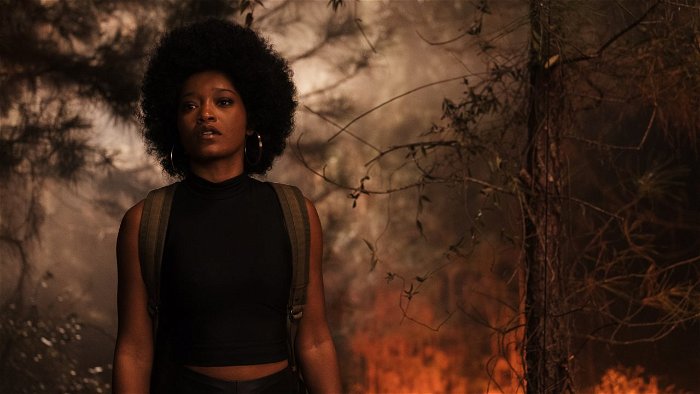
Similarly, Paul’s seemingly estranged wife, Rachel’s brief role in the story despite Alice’s strong resentment towards her, seems like a missed opportunity to further delve into her relationship with the Bennetts as well as Paul and Rachel’s marriage. Not to mention the custody arrangement surrounding their young son, whose relationship with Alice appears confused (he both looks up to her and down upon her when it suits the plot, apparently).
Separated or not, considering that Rachel is technically an accessory to Paul’s illegal activities also suggests that Rachel would be motivated to silence Alice by any means necessary, which could have made for an interesting twist in the third act, but instead, Rachel only shows up so that Alice can slap her across the face and shout in a rare moment of arrogance “I AM freedom.”
Inexplicably, the most wasted character here is Frank. Once he brings Alice home from the hospital, he is largely hands-off and capitulates to just about anything Alice asks him to do, with barely an argument, even though he barely knows Alice and has no reason to. The circumstances of his mother’s death are barely touched on. The strained relationship with his brother (who might be a tad racist himself) is barely discussed. Yet when Frank shows hesitancy in helping Alice plot a rescue mission that may involve murder, Alice sees fit to suggest Frank is “just like her” (i.e., a slave) for following his brother’s orders as an employee, a completely illogical leap as she knows neither of them from Adam, and, as Frank points out shortly afterwards, has no concept of the law or the police despite her rapid crash-course education on the Civil Rights Movement. Frank barely gets to help Alice grow as a character at all; he has no friends of his own, and simply serves as a tool to get Alice from one place to the next. He’s got a working truck, a couple of guns, and makes a mean ham and mustard sandwich, but otherwise he’s ineffectual.
In the end, I enjoyed Alice for the compelling genre mash-up experiment and empowerment fantasy that it is, but I can’t help feeling that its message (whatever one might interpret that to be) would have been better served by a version of the film that was slightly longer, more realistic, made better use of its supporting characters and that dared to push the envelope further in either the dramatic or blaxploitation direction, or both. But don’t sleep on Keke Palmer, I feel she’s destined to be one of Hollywood’s next big talents.
